# easeofdoingbusiness
11 posts in `easeofdoingbusiness` tag
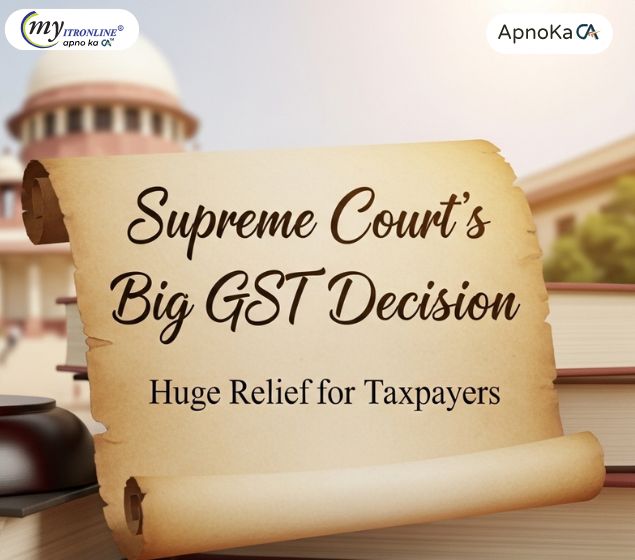
Supreme Court’s Big GST Decision Huge Relief for Taxpayers
The Supreme Court of India has ruled that once a taxpayer pays the 10% pre-deposit required to file a GST appeal, the government cannot freeze bank accounts or recover additional funds. This landmark decision protects honest taxpayers and ensures fair enforcement under GST law.
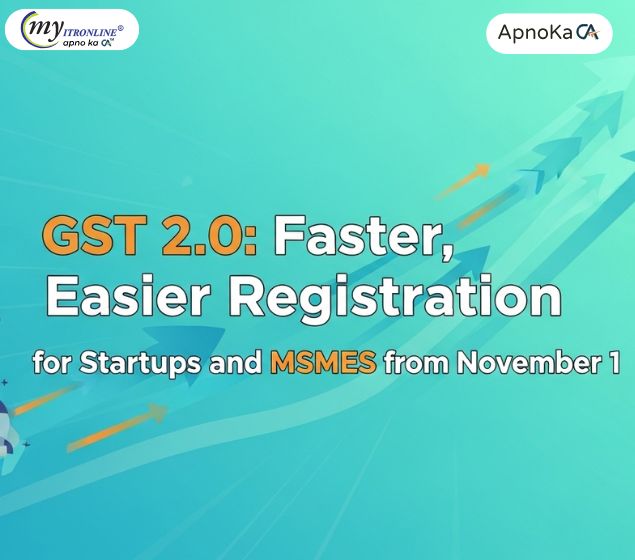
GST 2.0: Faster, Easier Registration for Startups and MSMEs from November 1
From November 1, 2025, small businesses and startups in India can benefit from a simplified GST registration process. This reform promises approval within 3 working days for low-risk applicants and public sector entities. It’s part of the broader GST 2.0 initiative aimed at making tax compliance faster, easier, and more tech-driven. Learn how this change can help you start your business with less hassle and more confidence.
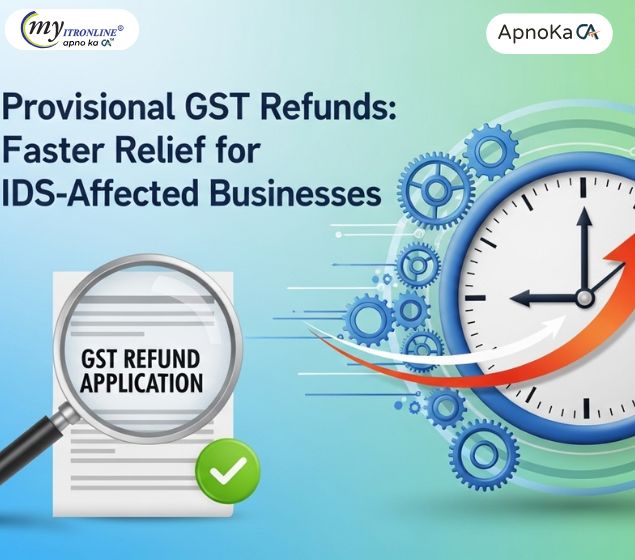
Provisional GST Refunds: Faster Relief for IDS-Affected Businesses
Starting October 1, 2025, businesses affected by inverted duty structure (IDS) can now receive 90% of their GST refund upfront. This move by CBIC aims to ease working capital pressure and improve cash flow for industries like textiles, footwear, and fertilizers. Learn how this change impacts your business and what steps you need to take.
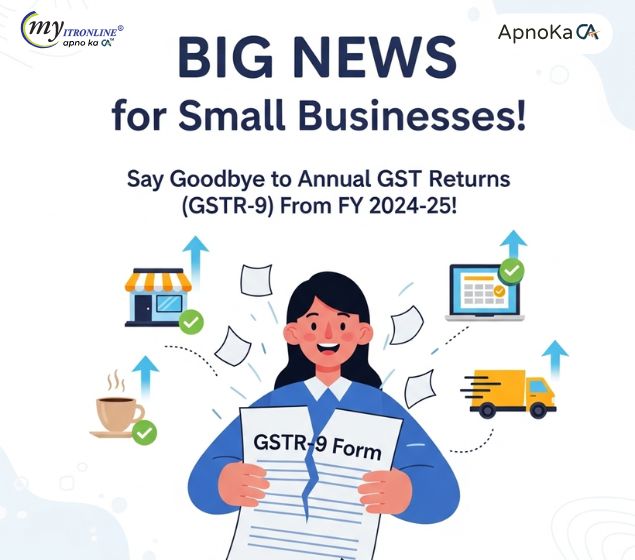
Big News for Small Businesses: Say Goodbye to Annual GST Returns (GSTR-9) From FY 2024-25!
This blog post announces a significant and permanent change in GST compliance for small businesses in India. From Financial Year 2024-25, businesses with an annual aggregate turnover of up to 2 crore are exempt from filing the annual GST return (Form GSTR-9). The article details what changed, who benefits, and the tangible advantages like time and cost savings. It also highlights crucial reminders about continued monthly/quarterly filings, record-keeping, and turnover monitoring. The post emphasizes that this move will greatly enhance the "Ease of Doing Business" for millions of small enterprises.
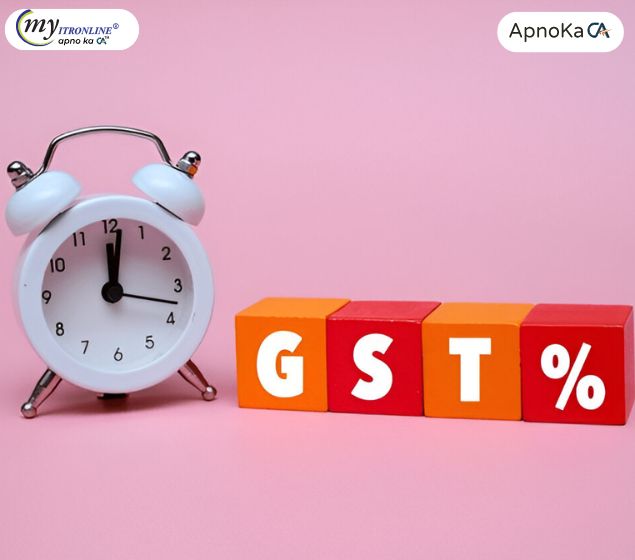
GST Registration Headaches? CBIC Unveils New Email Grievance Fix!
This blog post details the new email-based grievance redressal mechanism introduced by CBIC via Instruction No. 04/2025-GST (May 2, 2025). It addresses challenges like delays and improper queries during GST registration under Central Jurisdiction. Learn how to file grievances using dedicated Zonal email IDs, the required information (ARN, Jurisdiction, Issue details), handling of state cases, and the accountability via monthly reporting to DGGST.

What's New in GST Registration? Breakdown of the April 2025 CBIC Circular
This blog post details the updated GST registration guidelines issued by the CBIC on April 17, 2025. It explains the challenges faced by businesses, outlines the typical solutions introduced (like risk-based approaches, standardized procedures, and clearer rules for verification), discusses the anticipated benefits such as faster processing and reduced compliance burden, and advises businesses on navigating the new regulations effectively. The goal is to clarify how these changes aim to simplify the process and reduce harassment, thereby improving the ease of doing business in India.
.jpg)
India’s Budget 2025: Game-Changing Policies for MSMEs
Through improved loan availability, tax breaks, digital transformation, and export promotion, the Union Budget 2025 has implemented a number of initiatives to support India's MSME sector. The introduction of Digital MSME India, the expansion of the PLI program, the reduction of GST compliance requirements, and a ₹50,000 crore investment in the CGTMSE are some of the major projects. Discover how these reforms will empower small firms and spur their expansion by reading on.

Taxpayer Benefits from Leasehold Rights GST Exemption Ruling
The recent court ruling on the GST taxation of leasehold rights has given taxpayers much-needed clarification and respite. This important decision exempts leasehold rights from GST as it acknowledges them as immovable property transactions. It gives the potential for reimbursements for previous transactions, lessens the tax burden, and lowers compliance challenges. Examine how this choice promotes ease of doing business while affecting taxpayers and enterprises.
.jpg)
Major Tax Reform: No GST on Transfer of Industrial Leasehold Rights
In an effort to save expenses and tax uncertainties, the government announced that the sale of leasehold rights for industrial plots would be free from GST. The goals of this action are to encourage business-friendly conditions, reduce regulatory costs, and advance industrial expansion.
.jpg)
Simplified GST Compliance: Relief Offered Under Section 128A Advisory
By eliminating or lowering late fines and penalties for GST reporting delays, the GST Waiver Scheme under Section 128A helps taxpayers. This guidance assists MSMEs, fosters voluntary compliance, and pushes companies to regularize their files. Find out how to take advantage of this limited-time offer, including qualifying requirements and advantages.
.jpg)
A Simplified TDS System: How One Rate, One Section Reduces Tax Hassles
A revolutionary move toward streamlining tax compliance is the Indian government's proposal to implement a single rate and section for Tax Deduction at Source (TDS). This program seeks to reduce compliance obligations, promote a pro-business environment, and remove the confusion brought about by different rates and sections. Find out how this change helps taxpayers, simplifies compliance, and supports India's objective of raising the Ease of Doing Business index.
